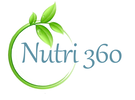|
Diet is a hot topic of discussion in today's society. You're either on a diet, trying to lose weight or you've recently completed one. But what you may not know is that your diet isn't just about how you look, it has a significant impact on your immune system as well. We'll take a closer look at the critical role of nutrition when it comes to immunity and offer some tips on how to make sure your diet is supporting your health. Whether you're struggling with an immune system issue or simply want to boost your overall health, keep reading for insights into the relationship between diet and immunity! In order to have an optimal immune function, we need to think about our lifestyles, microbiomes, and diets. I have talked about lifestyle and microbiomes in my previous blog. Next, I will talk about some of the dietary factors that are important.
Critical Role of Diets In this blog, I'm going to show you how your diet affects your immune system. Diets play a CRITICAL ROLE in immune function. It becomes even more important to eat a healthy diet as you get older. This is because we tend to have more nutrient deficiencies and impaired absorption. As you age, you need to eat herbs and vegetables every day that are powerful for your immune system. You also need to think about your relationship with food. Blood Sugar Issues Every time you eat, your body has some form of inflammation. Inflammation takes energy away from your immune system. You should aim to have satisfying and satiating meals so that you don't feel the need to snack or graze all the time. You should make sure that the food you eat is balanced so you don't have a blood sugar rollercoaster. According to some recent articles, there is evidence that links high blood sugar levels to more severe cases of COVID. Sugar can damage immune cells. When you have an infection, your body becomes resistant to insulin. It is standard advice to have protein and fats with every meal in order to balance blood sugar levels, but everyone has a different opinion. If you have blood sugar irregularities or blood sugar issues, I advise that you work with a NUTRITIONAL THERAPIST. Try to get a deeper understanding of the problem and find a way to control the irregularities. Contact a Nutritional Therapist: CLICK HERE Eat the Rainbow You eat the rainbow. It is a slogan about eating fruits and vegetables. It is so important. “Eat the Rainbow” means the different fruits and vegetables come in different colors. These colors are important because they mean that the food has different nutrients in it. You should try to eat foods from all of the colors of the rainbow every day, so you can get all of the different nutrients that your body needs. Half of your plate at every meal should be filled with fruits and vegetables. Different colors of food have different polyphenols. Polyphenols are compounds with powerful immune-supporting effects. Your immune cells have several types of receptors that enable them to use these compounds. Then, immune cells are more effective against pathogenic invaders. The foods in the “rainbow” are antioxidants. They are immune supportive and can help protect healthy cells in your body and counteract free radicals which are considered damaging. You can also get polyphenols and antioxidant supplements. These supplements can be a great addition to your diet. However, you cannot supplement your way out of a bad diet. EAT THE RAINBOW. Eat a variety of colorful foods. Focus on these Nutrients These IMPORTANT NUTRIENTS are important to FOCUS on in your diet. They can be found in many different foods, so you have many options to choose from. By including these nutrients in your diet, you will be giving your body the tools it needs to function at its best, especially in IMMUNE FUNCTIONS. Vitamin D Many people believe that Vitamin D is necessary for a healthy immune system. It is widely acknowledged. Vitamin D is known to help protect against respiratory infections in general. People in the north and Southern hemispheres usually don't have enough Vitamin D during winter. Their Vitamin D status should be determined before dosing on supplements. They should take a vitamin D BLOOD TEST before taking supplements. “VITAMIN D BLOOD TEST determines the LEVEL of 25-hydroxyvitamin D in your blood. If you have too much or too little vitamin D, it might mean that you have a bone disorder, a nutrition problem, organ damage, or another medical condition.” Inquire about this Vitamin D Blood Test. Schedule a Discovery Call. CLICK HERE Vitamin A Vitamin A is part of an antioxidant group. It supports the health of mucosal, tissue issues, and barrier function. Retinoic acid is a METABOLITE of vitamin A. It helps regulate the immune system via the microbiome. “A METABOLITE is a substance utilized when the body breaks down food, tissues like fat or muscle, or other substances. A METABOLITE can also be produced in those processes.” You don't often hear about vitamin A but more about beta carotene. Beta-carotene is turned into vitamin A by the liver. But for some, there is a problem with this conversion, and it just doesn't work very well. It's due to genetics. There are many different ways to get enough vitamin A in your diet. The best way is to eat food that already has a lot of it, like liver or Cod liver oil. You can also eat food that is high in beta carotene, like sweet potatoes, carrots, black-eyed peas, spinach, and broccoli. Zinc Zinc is important for gene activation, energy production, and immune response. Zinc may help you avoid respiratory tract infections. Zinc is found in high levels in oysters, beef, crab, and lobster. It is also found at lesser levels in chicken, cheese, kidney beans, garbanzo beans, cashews, and almonds. Selenium Another nutrient that is not talked about as much is selenium. Selenium is a potent antioxidant. Selenium is an antioxidant that acts as a cofactor for glutathione peroxidase. Glutathione peroxidase is an antioxidant enzyme class. Glutathione is a master antioxidant. It reduces inflammation in the body and helps the immune system fight infection. Low glutathione can also cause allergies and food intolerances. Foods rich in selenium include Brazil nuts, tuna fish, shellfish, eggs, flax seeds, and Shiitake mushrooms. Protein Adequate protein is crucial to immune function in particular the amino acids, Taurine, carnosine, and serine. These are found in animal foods like beef and lamb. They promote an immunological defense against infections by enhancing the metabolism and functions of immune cells. They also bind to and inhibit the growth of some viruses. There are other foods and nutrients that are protein immune enhancers such as black elderberry, echinacea, oregano, aloe vera, ginseng, and Vitamin C. While you may be familiar with the basics of a healthy diet, there are some lesser-known facts about nutrition and immunity that could surprise you. As a functional nutritional therapist, I am passionate about helping people live their healthiest lives, so I want to share some tips on how to make sure your diet is supporting your immune system. If you're interested in learning more or have any questions, don't hesitate to reach out, and then I can discuss how I can help you achieve optimal health! If you haven’t joined our Private Facebook Group, please CLICK HERE If you’re looking for a more natural way to manage your health, please contact us and schedule a discovery call to see if our approach would be appropriate for your situation. DISCLAIMER: The information in this email is not intended nor implied to be a substitute for professional medical advice, diagnosis, or treatment. All content is for general informational purposes only and does not replace a consultation with your own doctor/health professional
0 Comments
Leave a Reply. |
Archives
November 2023
Categories |

